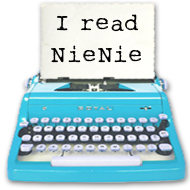My cousin, Amy, enlisted in the Army after high sch
 ool and quickly learned that no matter how she tried to talk like, look like, act like, a boy she was still a girl. It was when she learned to combine her understanding of males and masculine behaviors and use that knowledge as a girl with feminine characteristics that she found her place in the Army. She didn't look at her unit as "boys and girls" but rather as enlistees with a common mission and goal of becoming a soldier. How each person achieved that was not based upon gender alone, but personality and preference. Women soldiers could be a modern-day version of England's "Female King!"
ool and quickly learned that no matter how she tried to talk like, look like, act like, a boy she was still a girl. It was when she learned to combine her understanding of males and masculine behaviors and use that knowledge as a girl with feminine characteristics that she found her place in the Army. She didn't look at her unit as "boys and girls" but rather as enlistees with a common mission and goal of becoming a soldier. How each person achieved that was not based upon gender alone, but personality and preference. Women soldiers could be a modern-day version of England's "Female King!"Referring to my post "Playing with Discovery," I give my readers to Queen Elizabeth's Tilsbury Speech where in it Elizabeth utilizes the masculine technique of defining herself as an individual, yet she does that through her country and people. Look at her uses of "I, me, my, myself" and notice it is always followed with a method of definition ex. "My people." Does this make sense? As she defines herself through others she exhibits a feminine communication method of caring for others. This woman was a MASTER of combining the masculine and feminine.
Here's today's question for the bloggosphere: Where have you seen such a combination in your life, digital or human in nature?










I think Virginia Woolf's novel Orlando is very applicable to your exploration of gender and identity in Elizabethan England. It is about a man in Elizabethan England who turns into a woman.
ReplyDeleteHere it is on google books: http://books.google.com/books?id=a6hH3GGYm_4C&printsec=frontcover&dq=orlando&cd=1#v=onepage&q&f=false
and in our library:
http://primofe1.byu.edu/primo_library/libweb/action/search.do?cs=frb&frbg=26859232&fctN=facet_frbrgroupid&fctV=26859232&scp.scps=scope%3A(LEE)%2Cscope%3A(BYU)%2Cscope%3A(LAW)%2Cscope%3A(byugle)%2Cscope%3A(Unicorn_online)%2Cscope%3A(CONTENTdm)%2Cscope%3A(JUV)%2Cscope%3A(SPEC)%2Cscope%3A(INTERNET)%2Cscope%3A(SWKT)%2Cscope%3A(SLC)%2Cscope%3A(LEELRC)%2Cscope%3A(MUSIC)%2Cscope%3A(saskia)&tab=default_tab&mode=Basic&fn=search&vl(172369922UI1)=all_items&dscnt=0&dstmp=1274725233812&ct=Next%20Page&vid=byu-cl&indx=11&vl(freeText0)=Virginia%20Woolf%201882-1941.&vl(13550901UI0)=creator
I posted an article on Heather's blog (Musings of a College Kid)that I think can apply to you too - it's one of those multiple identity ideas. I'm just going to copy and paste part of the comment I gave her here. It doesn't really apply to your question for today, but I think it applies a bit to the hermaphrodite idea, or deserves a look at least.
ReplyDelete"Can You See the Real Me? Activation and Expression of the "True Self" on the Internet"
(http://smg.media.mit.edu/personals/chi2004/private/papers/bargh.pdf).
This article distinguishes between the multiple perceptions of "self" we possess, such as the ideal, ought, and actual self-concepts, and it relates these to the personas people create for themselves on the Internet. It suggests the idea that the true self might be more easily expressed in an Internet setting than in face-to-face communication.